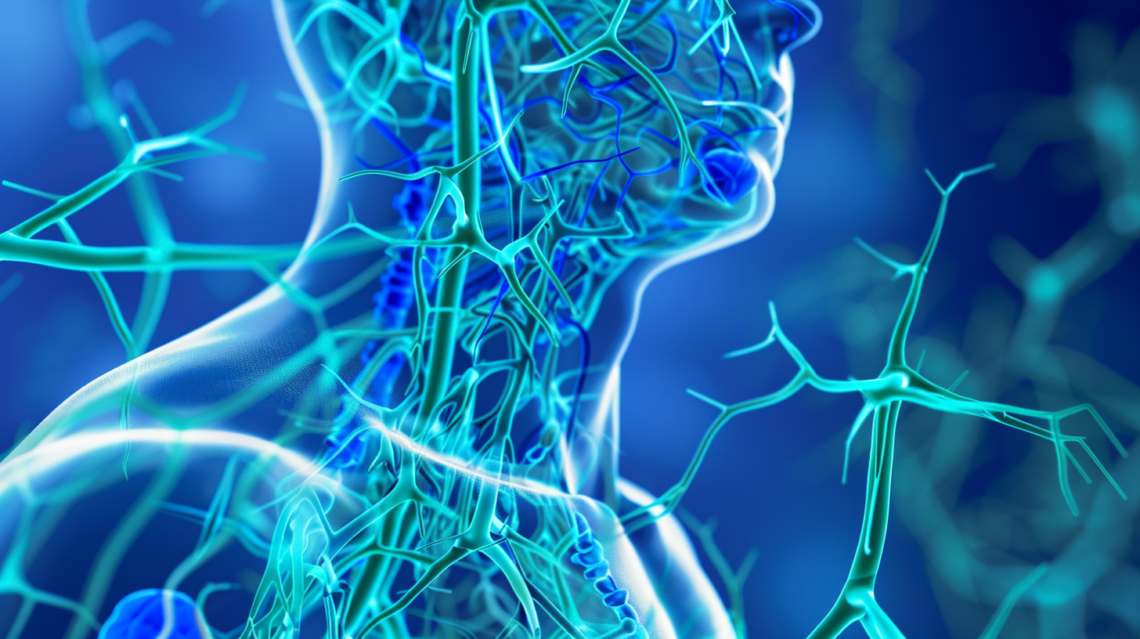Health
-
Rare Disease Spotlight: Chronic Progressive External Ophthalmoplegia
Chronic Progressive External Ophthalmoplegia (CPEO) is a debilitating condition primarily characterized by the gradual loss of eye muscle function and eyelid movement, affecting either one or both eyes. This condition, which typically commences between the tender ages of 18 and 40, manifests through a series of symptoms that severely impair the quality of life of those affected. Among the most prominent symptoms are weakness or paralysis of the eye muscles, known medically as ophthalmoplegia, and droopy eyelids, referred to as ptosis. These symptoms not only hinder the physical aspects of eye movement but also contribute to a range of emotional and psychological stresses, as the affected individuals grapple with the…
-
Rare Disease Spotlight: Duchenne Muscular Dystrophy
Duchenne Muscular Dystrophy (DMD) is a severe disorder that leads to progressive muscle weakness and atrophy, primarily affecting skeletal muscles used for movement and the cardiac muscle. This condition is a form of muscular dystrophy, a group of genetic diseases that weaken the musculoskeletal system and hamper locomotion. DMD is distinguished by its early onset, usually in childhood, and its rapid progression compared to other forms of muscular dystrophy. The Genetic Basis of DMD At the core of Duchenne Muscular Dystrophy is a genetic anomaly on the X chromosome affecting the dystrophin gene, which is crucial for maintaining muscle cell integrity. Dystrophin is a protein that acts as a shock…
-
Rare Disease Spotlight: Ehlers-Danlos Syndrome (EDS)
Ehlers-Danlos syndromes (EDS) represent a multifaceted collection of inherited connective tissue disorders, fundamentally characterized by anomalies in the structure, production, and processing of collagen. This protein’s pivotal role in providing strength and elasticity to skin, ligaments, and blood vessels makes its disturbance a source of considerable medical concern. The resultant spectrum of clinical manifestations is broad, encompassing skin hyperextensibility, joint hypermobility, and tissue fragility, which can affect various organ systems to varying degrees of severity. Patients with Ehlers-Danlos syndrome frequently experience issues with their hand and wrist joints. Typical clinical features involve skin that is soft, smooth, and slightly hyperextensible, accompanied by a tendency to bruise easily yet heal normally.…
-
Rare Disease Spotlight: Sarcoidosis
Sarcoidosis represents a complex and multifaceted condition that manifests through the formation of granulomas, which are small clusters of inflammatory cells, within various organs throughout the body. This disease is characterized by its unpredictability in terms of organ involvement, severity, and the course it takes, varying greatly from individual to individual. At its core, sarcoidosis is an immune response gone awry, with the body’s immune system mistakenly attacking its own tissues and organs, leading to the formation of these granulomas. While these can develop in any organ, they predominantly affect the lungs, lymph nodes, eyes, and skin, but can also impact the liver, heart, and brain, albeit less commonly. The…
-
Navigating the Challenges of Rare Diseases
Across the globe, an estimated 300 million individuals grapple with the complexities of living with a rare disease. This figure, which accounts for approximately 3.5 to 5.6 percent of the worldwide population, sheds light on a significant yet often overlooked segment of our society. Rare Disease Day, observed today on February 29th, serves as a pivotal moment to amplify awareness and mobilize support for those affected by these uncommon conditions. The majority of rare diseases, with over 72 percent being genetically rooted, present a spectrum of challenges that underscore the urgency for enhanced research, diagnostic processes, and access to care. One of the most formidable obstacles faced by individuals with…
-
GERD Trigger Foods and Prevention Strategies
Gastroesophageal Reflux Disease (GERD) is a chronic digestive disorder that affects a significant portion of the population, leading to uncomfortable symptoms such as heartburn, regurgitation, and sometimes even difficulty swallowing. This condition occurs when stomach acid flows back into the esophagus, the tube connecting the mouth and stomach, causing irritation and inflammation. The complexity of GERD lies not only in its symptoms but also in the diverse factors that can exacerbate these discomforts, particularly the role of diet and lifestyle choices. Understanding the foods that trigger GERD and adopting strategies to prevent flare-ups are crucial steps in managing this condition effectively, ensuring individuals can maintain a high quality of life…
-
Pink Shirt Day: Bullying’s Mental Health Focus
Pink Shirt Day, celebrated annually in Canada and across the globe, stands as a vibrant testament to the collective resolve against bullying—a pervasive issue that transcends the confines of playgrounds and permeates schools, workplaces, homes, and the digital realm. Originating from a Canadian act of solidarity when two students, Travis Price and David Shepherd, rallied their peers to don pink shirts in support of a fellow student bullied for wearing pink, the day has evolved into a global movement. It underscores the importance of community action in confronting bullying, advocating for kindness, and fostering environments where respect and empathy prevail. This initiative not only highlights the social and emotional toll…
-
Maximizing Brain Health
Taking care of our brain is crucial for maintaining overall health and wellbeing. A healthy brain not only supports cognitive functions such as memory, attention, and problem-solving but also plays a significant role in regulating emotions and behaviour. There are several lifestyle choices and habits that can promote brain health, enhancing its functionality and potentially reducing the risk of cognitive decline as we age. Nutrition: The Foundation of Brain Health A well-balanced diet is fundamental to brain health. Foods rich in antioxidants, healthy fats, vitamins, and minerals provide the brain with the nutrients it needs to function optimally. Omega-3 fatty acids, found in fish like salmon, mackerel, and sardines, are…
-
Early Preparation for Springtime Allergies
As we slowly inch closer to spring, many of us look forward to the return of vibrant greenery and the blossoming of flowers. However, this seasonal change also brings with it the onset of spring allergies for a significant number of people. Despite it still being February, now is the ideal time to start preparing for the allergy season that typically kicks off in mid-March and lasts until mid to late June. Understanding and taking steps to mitigate the effects of these allergies early on can greatly enhance comfort and wellbeing during the spring months. Spring allergies, for those unfamiliar, are primarily triggered by pollen from trees, grasses, and weeds.…
-
National Mental Health Nurses Day
Today. February 21st, 2024, Canada marks a significant milestone in the realm of healthcare and mental well-being with the first federally recognized National Mental Health Nurses Day. This landmark occasion, announced by the Canadian Federation of Mental Health Nurses, is not merely a day on the calendar but a profound acknowledgment of the critical role that mental health nurses play in the fabric of healthcare. As custodians of compassion and care, mental health nurses stand at the forefront of confronting and navigating the complexities of mental health challenges, offering a beacon of hope and support for countless individuals across the nation. Mental health nurses in Canada are specialized practitioners who…









